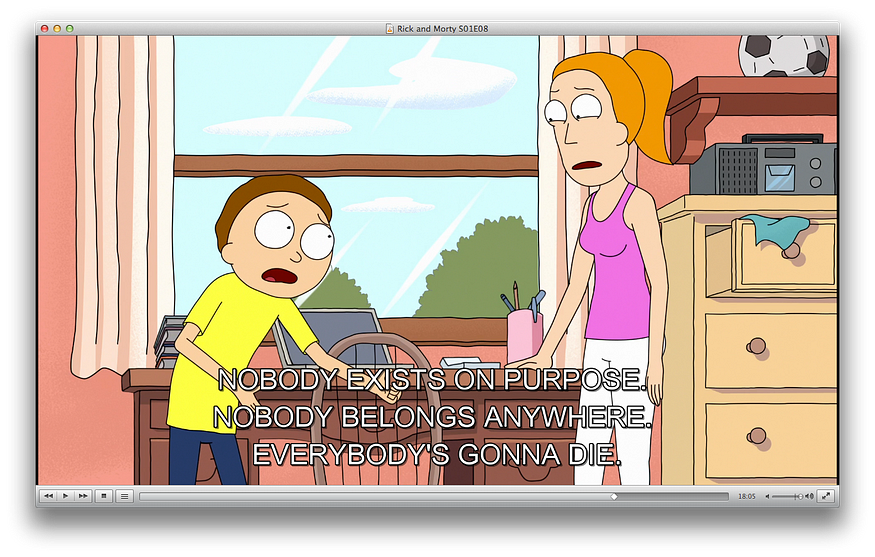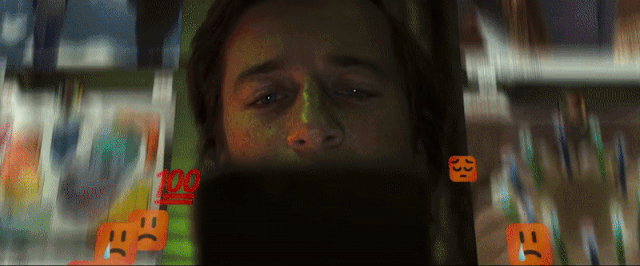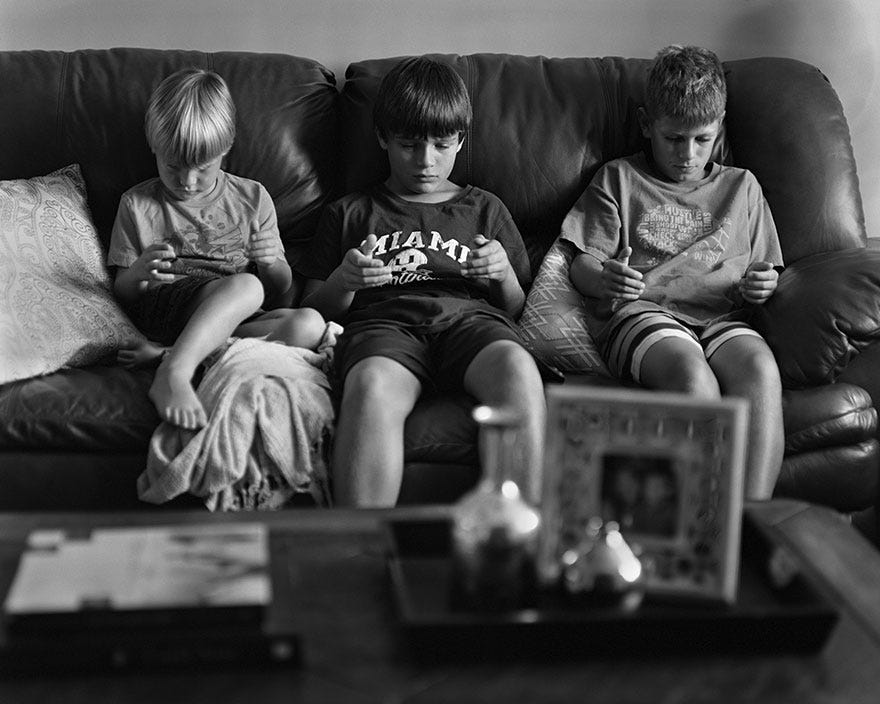
In case you haven’t been keeping up with radical domestic terrorist history, the Unabomber was sort of a big deal back in the day. He sent bombs through the mail to various targets in big tech, travel, media, and advertising for over 17 years, killing 3 people and injuring 23.
Finding the Unabomber, who was later revealed to be Ph.D. Harvard-educated genius Ted Kaczynski, became the FBI’s longest, most expensive manhunt ever.
So, why are we talking about this murdering piece of shit?
Because before Kaczynski was caught in 1996, he released his “manifesto” which perfectly predicts the future we inhabit, and perhaps beyond.
It’s even been compared to 1984 and Brave New World.
“The Unabomber Manifesto is a carefully reasoned, artfully written paper… If it is the work of a madman then the writings of many political philosophers: Jean Jacques Rousseau, Tom Paine, Karl Marx — are scarcely more sane.”
— UCLA professor James Q. Wilson
"Ted's most distinguishing was his demeanour. He was the most solemn and serious person I have ever met. [...] His seriousness was much less noticeable in the early years; as time passed it became far stronger. He was always friendly and spoke cordially to me, but he was always deep in thought."
—Unabomber: The Secret Life of Ted Kaczynski" by Chris Waits.
I’m not condoning Kaczynski’s actions, but his high IQ seemed to give him insights into trends in technology and media not visible to the everyday person.
Let’s go over the best, or perhaps worst, of them
1. Modern society requires people to live under conditions radically different from those under which the human race evolved
“Among the abnormal conditions present in modern industrial society are excessive density of population, isolation of man from nature, excessive rapidity of social change and the breakdown of natural small-scale communities such as the extended family, the village or the tribe.” — Ted K.
Will anyone be able to do high school-level math on their own in 10 years?
What about imagination? Is that going away if we don’t use it?
Ted argues that an overreliance on technology is bad for the human spirit—and the repercussions are high if the technology we are resilient on breaks down in a disaster…
The modern civilization we’ve created is unnatural and we behave unnaturally within it almost like animals in a zoo.
“Technology” is more or less an adjective that Ted uses to describe one specific tech: that being mass surveillance and social control through an internet of things. And ultimately what we are creating with this “technology” is an environment not meant for human beings to inhabit.
This will create widespread feelings of inferiority and psychological suffering.
Don’t worry, Zuckerburg and co will take good care of your personal information.
2. The existential dangers of “oversocialization”
Many of us are “oversocialized” according to Kaczynski, meaning we’re made to feel extremely ashamed of our natural impulses such as lust, hatred, and candidness, leading to more feelings of guilt and powerlessness in the system.
“The moral code of our society is so demanding that no one can think, feel and act in a completely moral way.”
Kaczynski believed political correctness would dominate the modern world and that an Orwellian “Newspeak” would emerge.
There shouldn’t be such a thing as “hate speech.”
Where are the lines drawn? What does it mean? I want to be able to communicate. If that means being as direct and offensive as possible then fucking do it. It’s better than real violence, right?
It reminds me of another Carlin bit about how PTSD evolved from its original form: “In the first world war, that condition was called shellshock. Simple, honest, direct… thanks to the lies and deceits surrounding the Vietnam war, I guess it’s no surprise that the very same condition was called post-traumatic stress disorder!!”
3. The Meaning Crisis
People have a need to take part in the “power process” Kaczynski says — which is putting serious effort into attaining a goal they know is important. For our ancestors, this would be finding food and satisfying biological needs.
In the modern Western world it’s a bit more complicated.
Modern industrial society makes the fulfillment of biological needs trivial, requiring only obedience to survive.
Because of this, people engage in meaningless and artificial “surrogate activities:” buying the latest consumer goods, doing the endless scroll, porn, becoming a Disney adult and social activism.
It’s not that these are all useless things but you’re unlikely to find meaning in them.
4. Mass production makes all products the same and global homogenization makes all places the same
“When one does not have adequate opportunity to go throughout the power process the consequences are …boredom, demoralization, low self-esteem, inferiority feelings, defeatism, depression, anxiety, guilt, frustration, hostility, spouse or child abuse, insatiable hedonism, abnormal sexual behavior, sleep disorders, eating disorders, etc.”
According to Teddy — can I call him Teddy? I’m going to call him Teddy — our society traps us in a rat race where we work to earn money and are then encouraged to spend it on meaningless products.
It’s an endless cycle of 9 to 5, 5 days a week, and it prevents us from pursuing our ‘real’ passions and interests.
5. College is a useless scam
College professors enjoy the illusion of rebelling, and that’s all.
The college wage premium is dead and higher education is becoming a scam.
“The university intellectuals play an important role in carrying out the System’s trick. Though they like to fancy themselves independent thinkers, the intellectuals are the most oversocialized, the most conformist, the tamest, and most domesticated, the most pampered, dependent, and spineless group today.” — Teddy K.
College professors, according to Ted, play a key role in helping their students become dependent on the system and incapable of any meaningful rebellion.
6. Technology is imposed upon you
Ted concludes the manifesto by stating that the reason technology wasn’t a significant problem until recently is that throughout history, tech always felt somewhat in our control.
Even the pioneers in the mid-1800s felt as though they controlled their own destiny despite living through the Industrial Revolution.
If technology was imposed upon them — such as the steam engine, telegraph, and cotton gin — the benefits and negatives were clear. The same cannot be said today.
A recent study from the American Academy of Child & Adolescent Psychiatry found that almost all US teenagers use social media and, on average, spend nearly nine hours a day online — we don’t own the technology; the technology owns us.
Here are two examples of how tech imposes itself that Teddy brings up:
Cars: Gradually as technology got more advanced, and more people started buying cars, cities suddenly had to be designed around the use of cars. We’re at the point where people who didn’t even want a car need one — when I lived in OKC they barely had sidewalks! The system would break down if we got rid of cars, so it’s important that everyone involved has a car and uses it.
Computers: Another example Ted uses are computers. When they first started out, Ted describes them as “expensive toys,” but then they got more advanced. Eventually the government started using them, then consumers, and now you can’t go through life without one.
Final Thought
The cover image is work by American photographer Eric Pickersgill who photoshopped away smartphones in a series of photos.
Here are two more I like:
I’m not a Luddite so I agree with 95% of what Ted says.
The part he’s missing is the cause: he thinks we need to revert to a more naturalistic, small-community-driven society after we overthrow the system.
That won’t happen. Technological comforts are greater than the revolution.
I believe it has more to do with Nietzche’s “Death of God.”
A society without God is chaos. Technology makes life easier and tempts people away from a purpose; it’s why the greatest philosophers all agree you need something driving you: Viktor Frankl believed it was a spirit of meaning, Aleksandr Solzhenitsyn believed it was a spirit of telling the truth, Dostoevsky a spirit of love over logic, Jung of self-actualization and Freud believed we were driven by an unconscious fear of death.
In the pursuit of one of these, you can forge your own way with brazen disregard for any imposed morality… something Nietzche said would take being a Superman or Übermensch to do— or you surrender to a higher power… just hope it’s the right one.
I don’t want to be too flippant here because I believe there’s a lot of truth to, “the fear of God being the beginning of wisdom.” It’s a personal journey we all need to take—it could take a lifetime.
I’ll leave you with one last quote from Teddy K:
“Scientists are unaware of (or choose to ignore) the fact that when large changes, even seemingly beneficial ones, are introduced into a society, they lead to a long sequence of other changes, most of which are impossible to predict . The result is disruption of the society. “— Teddy K.








I listened to the Audible version of The Unabomber's Manifesto about a year ago, and I was struck by how prescient it seemed. Had he not been caught and convicted of trying to blow up a few dozen people, we might talk about it in far different terms today.
His most basic point, in my listening, was #3: People need to take part in the "power process" to derive meaning from life. They need to be forced to strive for goals and then, upon achieving what they aim for, they derive satisfaction. This applies particularly to young males.
Technology has eliminated this "power process" to such an extent that we now erect fake goals that can't impart meaning. Virtue signaling is an example of this -- it requires almost no effort and imparts a like amount of meaning.
Your summary was really good. I came away with a nearly identical reaction. The guy may have lacked any moral compass, but his diagnosis of what ails our society has aged quite well.
Sobbering!